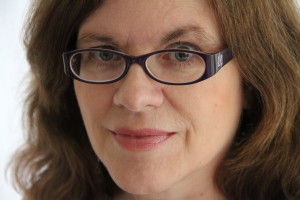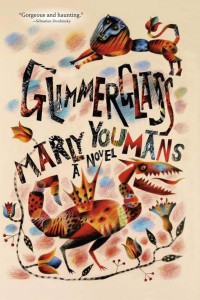Our Writers Who Read series continues this week with Marly Youmans.
Who are you? 
Marly Youmans. Some people know me as the author of 13 books, counting this year’s Glimmerglass and next year’s Maze of Blood. I write poetry (mostly formal, including long narratives), short stories, novels, and the occasional essay. Other people know me by my married name, and as the mother of three children. A few village spies have figured out that I am both of those people.
What are three beloved books you first read before the age of 12?
As a child, I was a maniacal reader who read during school, in the bathtub, and at night under the covers with a flashlight. I don’t think that I’ve ever met anyone quite so obsessed as the child I was. She astonishes me. Far and away, my two favorite books were the Alice books. I owned them (back then children didn’t own as many books as many do now) and I read them whenever I ran out of library books. I’m not sure what the third should be, but probably the illustrated Louis Untermeyer anthology of poetry that I wore to pieces.
What is one book you are always recommending to friends and family (and maybe the local barista) as an adult?
In the case of a book for older children or for people who love Dickens, I often find myself recommending Leon Garfield’s book Smith. In poetry, I’ve often recommended Charles Causley and Kathleen Raine in the past few years; people in the U. S. don’t seem to know their work. I’m not sure, but I believe Tom Jones was the last novel that I recommended.
What is your book kryptonite–those unique elements in a book, beyond just great writing and three-dimensional characters, that make you unable to resist reading?
The thing I care most about in a book is the sense of energy, the semblance of a living thing.
What is your ideal time and place to read?
I have no prejudices, though I like reading outside in the sunshine—not something that happens all that often to this Southerner living in upstate New York.
 Which books have had the biggest influence on your writing?
Which books have had the biggest influence on your writing?
That’s huge, so I’ll stick to writers with books in the English language, and who had an influence on some story or poem I’ve written. That means I’ll leave out a lot that I love.
Sir Gawain and the Green Knight. Medieval lyrics. George Herbert, Henry Vaughan, Andrew Marvell, Edward Taylor, John Donne, Thomas Traherne. Shakespeare. Milton. Fielding’s Tom Jones. Keats. Coleridge. Wordsworth. Jane Austen. Emily Dickinson. Whitman. Carroll. Christina Rossetti. Charlotte Bronte. Dickens and his pal Wilkie Collins. Hawthorne. Melville. Yeats. Frost. More Yeats. Smattering of Pound. Ted Hughes. Perhaps that’s enough. I could natter on all night.
How do you balance reading and writing in your life?
I’m not as good at it as I once was. Being the mother of three children meant that a lot of my time was given over to them, and living in a small village means being asked to volunteer a lot. I’m currently trying to read more. As a writer, I often go in maniacal bursts and then will be dormant for a while, aside from stray poem or short prose piece. Occasionally I fall under the most marvelous spell of poems. I love those flood times.
Choose your penned poison: ebook, physical book, or audio book?
I prefer print books, though I often listened to audio books when driving my children to visit family in North Carolina. I also listen to books when I am folding laundry or cleaning house. But I find it harder to retain what I hear. I like to take notes and mark my way through a book.
Do you consciously plan your future reading–i.e., set book goals, keep a TBR list, participate in book challenges or book clubs? Why or why not?
I do not. Perhaps I am too whimsical. Perhaps it smacks too much of school. I would dislike being so organized about my reading, though being organized is, I admit, a good thing.
What are you reading now?
Luisa Igloria’s Night Willow (prose poems) should arrive from Phoenicia Publishing tomorrow or the next day, so that’s sure to happen next. I was just reading Jeffery Beam’s The Broken Flower (poems); Jeffery gave me a wonderful blurb for Glimmerglass, so he was on my mind. In nonfiction, I recently finished Peter Leithart’s Deep Exegesis for a study group of priests and pastors that will meet soon. I’m not a priest or pastor but received an invitation because I am a poet, and Leithart talks a good deal about poetry in the book. And I just listened to the fables of Phaedrus and Aristotle’s Poetics while doing a mountain of laundry. As is usual with me and the recorded word, the syllables marched firmly into one ear and then rambled around in my head before easing out of the opposite ear. Alas.
Marly Youmans is on the usual social media, but is especially active on Facebook and twitter. Her blog is at http://www.thepalaceat2.blogspot.com; near the top of the site are tabs that will take you to pages for each of her books. Her newest book is Glimmerglass, a story that begins with a failed painter who thinks she has glimpsed the muse in the woods near her house. Available on September 1st. Recent in-print books are A Death at the White Camellia Orphanage, Thaliad, The Foliate Head, and The Throne of Psyche. Forthcoming is Maze of Blood.
